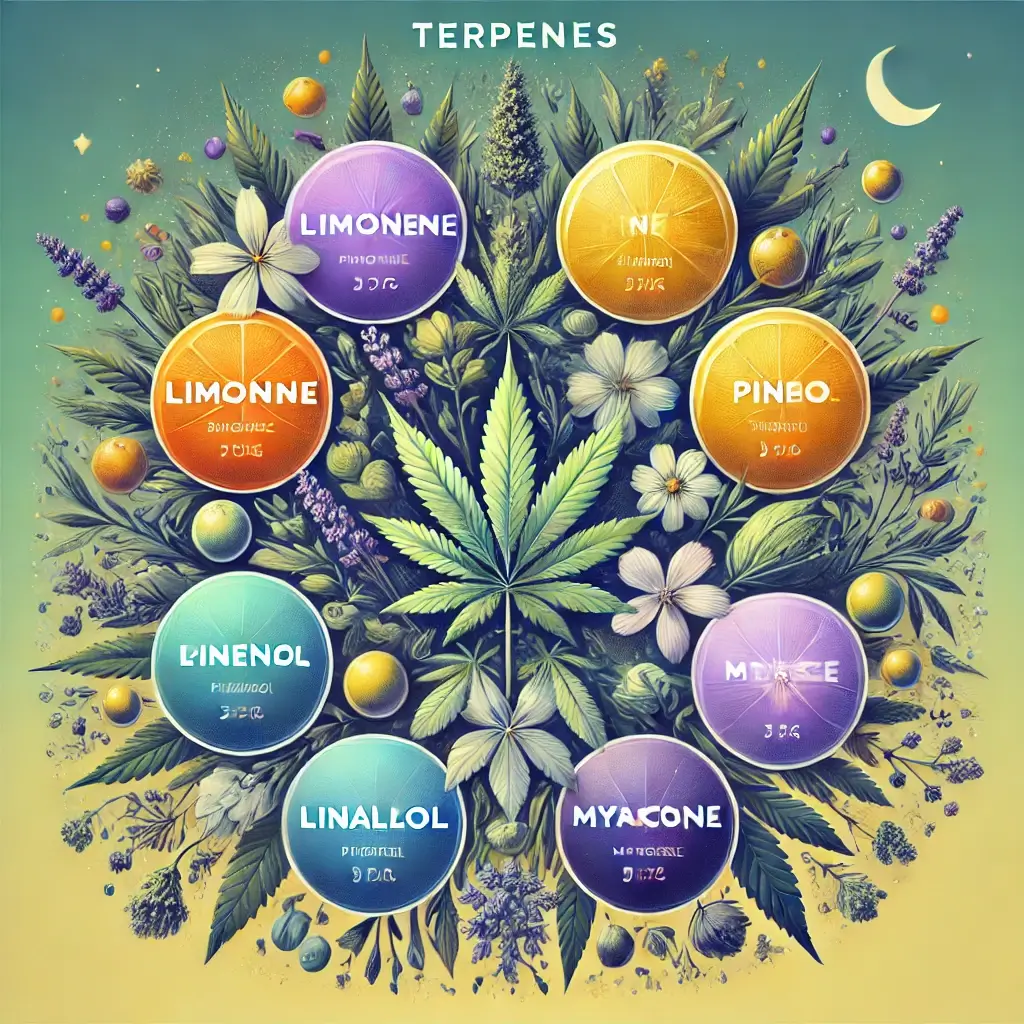Understanding Cannabis Beyond THC and CBD
When people think of cannabis, THC and CBD often dominate the conversation. Yet, behind the plant’s well-known cannabinoids lies a powerful group of compounds called terpenes. These aromatic molecules give cannabis its unique scents—whether it’s the citrusy zest of limonene or the earthy musk of myrcene—and play a significant role in determining the plant’s effects. For patients seeking targeted relief, terpenes could hold the key to a more personalized cannabis experience.
The Synergistic Effect of Terpenes
Terpenes are naturally occurring compounds found in countless plants, fruits, and herbs. In cannabis, they work in harmony with cannabinoids, a phenomenon called the “entourage effect in cannabis therapy”. This synergy amplifies therapeutic outcomes, helping patients manage conditions like pain, anxiety, and inflammation more effectively. While often overlooked, terpenes are gaining recognition as critical components in the medical use of cannabis.
Exploring Terpene Science and Benefits
This article explores the science behind terpenes, their potential benefits, and how patients can use terpene profiles to optimize their cannabis therapy. Whether you’re managing chronic pain, seeking better sleep, or looking for stress relief, terpenes offer an exciting path toward tailored wellness.
Understanding Different Terpene Types
Terpenes don’t just contribute to aroma; they directly impact how cannabis interacts with your body. Here’s a closer look at some of the most prominent terpenes and their potential medical applications of cannabis terpenes:
Myrcene: The Sedative Terpene
Renowned for its sedative properties, myrcene is often found in indica-dominant strains. Studies suggest myrcene may help patients dealing with chronic pain, insomnia, or muscle spasms by relaxing muscles and reducing inflammation (Russo, 2011). Its calming effects make it a popular choice for evening use.
Pinene: The Respiratory Aid
Pinene, responsible for the fresh, pine-like aroma in many strains, offers respiratory and cognitive benefits. Research highlights its anti-inflammatory and bronchodilator properties for asthma treatment. Additionally, pinene may counteract some of THC’s cognitive impairments, promoting clarity.
Limonene: The Mood Enhancer
Commonly found in citrus fruits, limonene is prized for its uplifting effects. This terpene is often used by patients managing anxiety or depression with cannabis. Early research suggests limonene could also have antimicrobial and anti-cancer properties, offering potential for broader therapeutic use.
Beta-Caryophyllene: The Dual-Action Compound
Uniquely interacting with CB2 receptors in the endocannabinoid system, beta-caryophyllene acts as both a terpene and a cannabinoid. This dual action in treating inflammation and chronic pain has made it a focus of studies investigating its potential for treating inflammation, chronic pain, and even neurodegenerative conditions.
Linalool: The Natural Relaxant
Linalool, known for its floral, lavender-like scent, has been extensively studied for its calming effects. For patients using cannabis for anxiety and stress relief, linalool-rich strains provide natural relaxation. Furthermore, linalool has shown promise in preliminary studies on seizure reduction and neuroprotection.
Maximizing Terpene Benefits
For patients, understanding terpenes can transform how cannabis is used for therapeutic purposes. Here’s how to incorporate terpene knowledge for optimal cannabis therapy into your decision-making process:
Practical Guidelines for Terpene Use
Read Product Labels: Many dispensaries now provide terpene profiles on their products. Look for labels listing dominant terpenes and their percentages. Choose Based on Need: Strains high in limonene or pinene are great for daytime use and focus, while those with myrcene or linalool are better suited for relaxation or nighttime use. Experiment with Strains: Everyone’s body responds differently to terpenes. Try various strains to find what works best for your symptoms. Consult Professionals: A healthcare provider with expertise in cannabis can guide you in choosing the right terpene profile for personalized cannabis treatment.
The Future of Terpenes in Cannabis Medicine
Terpenes are transforming the way patients approach cannabis therapy, offering a path to more personalized and effective care. By focusing on these aromatic compounds, you can better tailor your cannabis use for specific health conditions, from pain and anxiety to inflammation and sleep disturbances. As cannabis research continues to evolve, terpenes will undoubtedly take center stage in medical applications.




